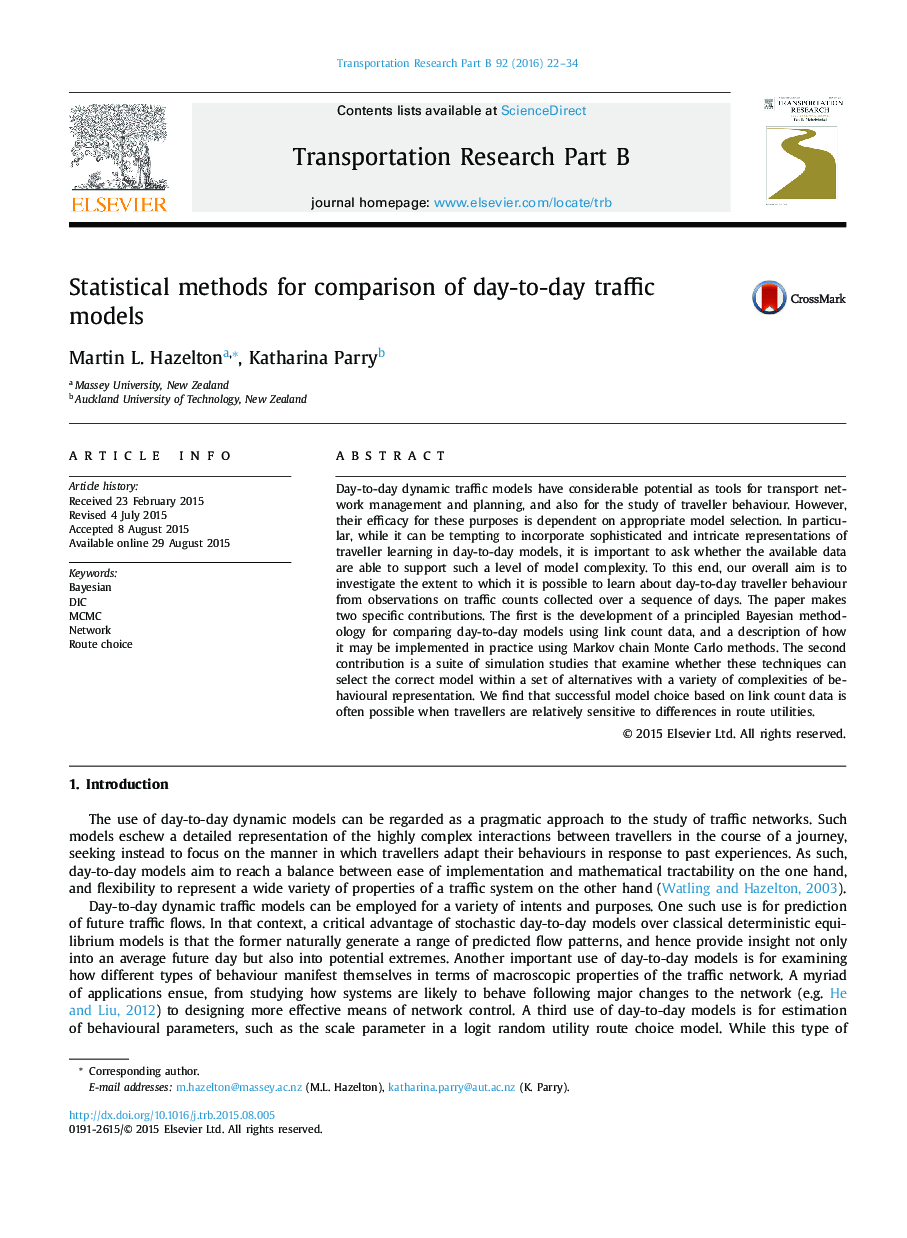| Article ID | Journal | Published Year | Pages | File Type |
|---|---|---|---|---|
| 5127211 | Transportation Research Part B: Methodological | 2016 | 13 Pages |
â¢Theory presented for Bayesian model selection for day-to-day traffic models.â¢Markov chain Monte Carlo algorithm developed for practical implementation.â¢Computation of complete data deviance information criterion discussed.â¢Simulation study of model selection accuracy based on link count data only.
Day-to-day dynamic traffic models have considerable potential as tools for transport network management and planning, and also for the study of traveller behaviour. However, their efficacy for these purposes is dependent on appropriate model selection. In particular, while it can be tempting to incorporate sophisticated and intricate representations of traveller learning in day-to-day models, it is important to ask whether the available data are able to support such a level of model complexity. To this end, our overall aim is to investigate the extent to which it is possible to learn about day-to-day traveller behaviour from observations on traffic counts collected over a sequence of days. The paper makes two specific contributions. The first is the development of a principled Bayesian methodology for comparing day-to-day models using link count data, and a description of how it may be implemented in practice using Markov chain Monte Carlo methods. The second contribution is a suite of simulation studies that examine whether these techniques can select the correct model within a set of alternatives with a variety of complexities of behavioural representation. We find that successful model choice based on link count data is often possible when travellers are relatively sensitive to differences in route utilities.
